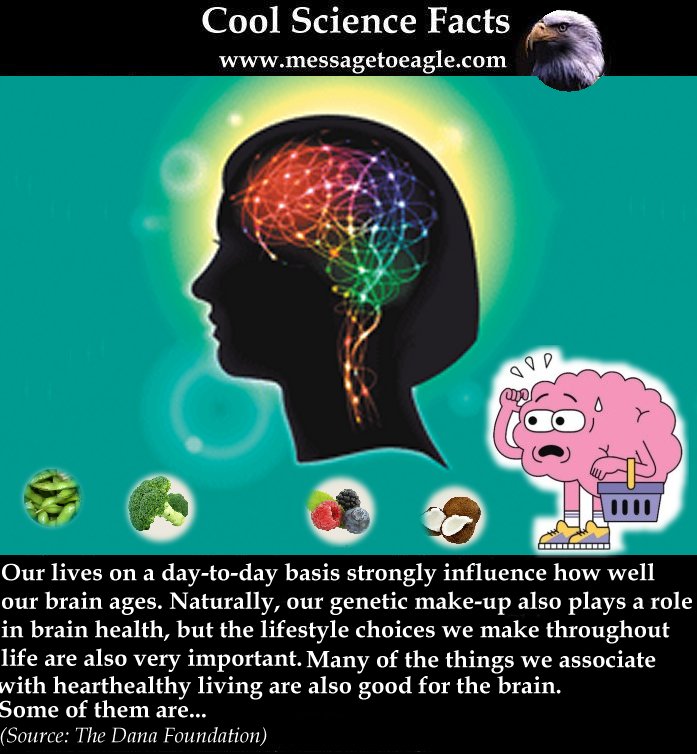Is There Anything I Can Do To Keep My Brain Healthy In Older Age?
Question: Is there anything I can do to keep my brain healthy in older age?
Answer: It is increasingly clear that how we live our lives on a day-to-day basis strongly influences how well our brain ages.
Naturally, our genetic make-up also plays a role in brain health, but the lifestyle choices we make throughout life are also very important.
Many studies have tracked older adults’ activities and habits to determine what distinguishes people who retain good mental faculties into old age from those who fare less well.
Some of the most important characteristics are:
- Staying mentally active by engaging the brain in stimulating and challenging activities that force us to use our brain in novel ways;
- Staying physically active through regular exercise (e.g., 30 minutes or more of brisk walking three times a week) or by pursuing active leisure activities that get you out and moving;
- Having a sense of effectiveness in the world and control over our lives, including feeling that we contribute to our families and/or society, and feeling good about ourselves;
- We have to maintain a strong network of social connections, including regular contact with friends, family, and other people in our community and beyond.
Scientists have also uncovered interesting correlations between heart health and brain health.
Many of the things we associate with hearthealthy living are also good for the brain.
See also: How Long Does Human Brain Develop?
In addition to exercise, this includes keeping weight, cholesterol, and blood glucose levels in check; managing stress so that it doesn’t overwhelm us; and eating a healthy diet with plenty of antioxidant vitamins (especially vitamins A, C, and E, found in many fruits and vegetables) and omega-3 fatty acids (found in fatty fish like swordfish, salmon, tuna, and mackerel).
The above-mentioned brain-healthy lifestyle strongly influence our memory and learning abilities even when we age.
MessageToEagle.com
source: The Dana Foundation
Related Posts
-
 A Journey To The World’s First Cloned Village
No Comments | Jun 23, 2012
A Journey To The World’s First Cloned Village
No Comments | Jun 23, 2012 -
 Gluskap: Mythical Hero Who Defeated Evil Sorcerers And Demon Followers
No Comments | Jan 25, 2016
Gluskap: Mythical Hero Who Defeated Evil Sorcerers And Demon Followers
No Comments | Jan 25, 2016 -
 Scattered Light Makes The Sky Blue
No Comments | Jan 17, 2016
Scattered Light Makes The Sky Blue
No Comments | Jan 17, 2016 -
 Mysterious Disappearance Of Scythians Remains Unsolved
No Comments | Sep 16, 2015
Mysterious Disappearance Of Scythians Remains Unsolved
No Comments | Sep 16, 2015 -
 Stunning Aerial View Of The Karnak Temple
No Comments | Sep 5, 2015
Stunning Aerial View Of The Karnak Temple
No Comments | Sep 5, 2015 -
 We Are Spiritual Beings Dressed In Bio-Body Suits – Our Thoughts Are Powerful Enough To Change Physical Reality – Professor Says
No Comments | Jan 3, 2017
We Are Spiritual Beings Dressed In Bio-Body Suits – Our Thoughts Are Powerful Enough To Change Physical Reality – Professor Says
No Comments | Jan 3, 2017 -
 Friouato Caves: Largest Cave System In Northern Africa
No Comments | Apr 24, 2016
Friouato Caves: Largest Cave System In Northern Africa
No Comments | Apr 24, 2016 -
 Amasia – New Future Supercontinent
No Comments | Jan 26, 2016
Amasia – New Future Supercontinent
No Comments | Jan 26, 2016 -
 Mystery Of The Pag Triangle – Strange Land Formation Remains Unexplained
No Comments | Apr 7, 2019
Mystery Of The Pag Triangle – Strange Land Formation Remains Unexplained
No Comments | Apr 7, 2019 -
 Use Your Mind To Change Reality: It Is Easier Than You Think
No Comments | Jul 19, 2015
Use Your Mind To Change Reality: It Is Easier Than You Think
No Comments | Jul 19, 2015

